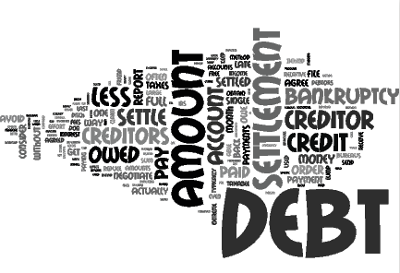6 Key Documents Mailed in Bankruptcy Process

In the intricate world of bankruptcy law, understanding the flow of essential documents through the mail is crucial for debtors, creditors, and legal practitioners alike. Bankruptcy, an option often considered by individuals or businesses facing insurmountable financial distress, initiates a legally mandated process of debt discharge or restructuring. Here's an exploration of the six key documents that you might receive in the mail during a bankruptcy process.
1. The Notice of Bankruptcy Filing


The journey into bankruptcy begins with the notice of bankruptcy filing. This document officially notifies creditors that the debtor has filed for bankruptcy. It contains:
- Case number and court information.
- Debtor’s details including name, address, and attorney information if applicable.
- Type of bankruptcy filed (Chapter 7, 11, 13).
- A list of all creditors.
- Meeting of creditors (341 meeting) date, time, and location.
💡 Note: Failure to receive this notice does not excuse creditors from participating in the bankruptcy proceedings; they are expected to check the court records periodically.
2. Meeting of Creditors Notice

Following the bankruptcy filing, a creditors’ meeting, also known as the 341 meeting, is scheduled. This meeting is an opportunity for:
- Creditors to ask questions about the debtor’s finances.
- The trustee to examine the bankruptcy petition and statements.
The notice provides:
- Date, time, and location of the meeting.
- Instructions for filing a proof of claim.
- A deadline for objections to the discharge of debts.
3. Proof of Claim

Creditors are sent a Proof of Claim form, which they need to complete if they wish to participate in any distribution of the debtor’s assets. This document includes:
- The amount owed to the creditor.
- The basis of the claim (contract, court judgment, etc.).
- Whether the claim is secured or unsecured.
🚨 Note: Claims must be filed by a specified deadline to be considered.
4. Notice of Confirmation of Plan

In Chapter 13 bankruptcy, where debtors propose a repayment plan, creditors receive:
- Details of the proposed repayment plan.
- Confirmation that the court has reviewed and approved the plan.
This notice informs creditors of:
- How much they can expect to receive.
- How long the repayment will take.
5. Discharge of Debts


Upon completion of the bankruptcy process, or when applicable milestones are met, debtors receive:
- An official court order stating that the debtor is no longer personally liable for most debts included in the bankruptcy.
- A list of any debts that are not discharged.
- A reminder of what can or cannot be discharged.
Discharge notices can also go to creditors to inform them of the new status of their claims.
6. Notice of Final Decree

Once all obligations under the bankruptcy case are met, the court issues a:
- Final decree, which officially closes the bankruptcy case.
- Notification to all parties involved that the bankruptcy case is concluded.
This document wraps up the proceedings, indicating that:
- The debtor’s case has been discharged (if applicable).
- Any remaining funds have been distributed.
- The case is now closed with no further action required from the debtor.
Wrapping Up the Process

Each of these documents plays a pivotal role in the bankruptcy process, ensuring transparency, fairness, and legal adherence. Understanding them helps debtors navigate the process with informed decisions, while creditors can pursue their claims appropriately. The mailing of these documents signifies key milestones in a bankruptcy case, from its commencement to its conclusion. Keep an eye out for these key documents if you are involved in a bankruptcy process, as they contain critical information regarding your rights and responsibilities.
What is the purpose of the 341 meeting?

+
The 341 meeting or Meeting of Creditors is for creditors to gather and ask questions about the debtor’s financial situation, assets, and liabilities. It provides an opportunity for the trustee to review the debtor’s case and for creditors to object to the discharge of debts if there are grounds to do so.
Can creditors file a Proof of Claim after the deadline?

+
Generally, creditors are bound by the deadline to file a Proof of Claim. However, in some jurisdictions, there might be provisions for late filing with good cause, but it’s not guaranteed that these claims will be considered.
What happens if I do not receive the discharge notice?

+
If you do not receive the discharge notice, you should contact your bankruptcy attorney or the court clerk’s office to ensure that it was indeed issued and whether there are any issues with the discharge process.
Are there any debts that cannot be discharged in bankruptcy?

+
Yes, some debts are not dischargeable, including but not limited to, certain taxes, alimony, child support, student loans (unless undue hardship is proven), fines or penalties owed to government agencies, personal injury debts from drunk driving, and debts not listed in the bankruptcy schedules.



